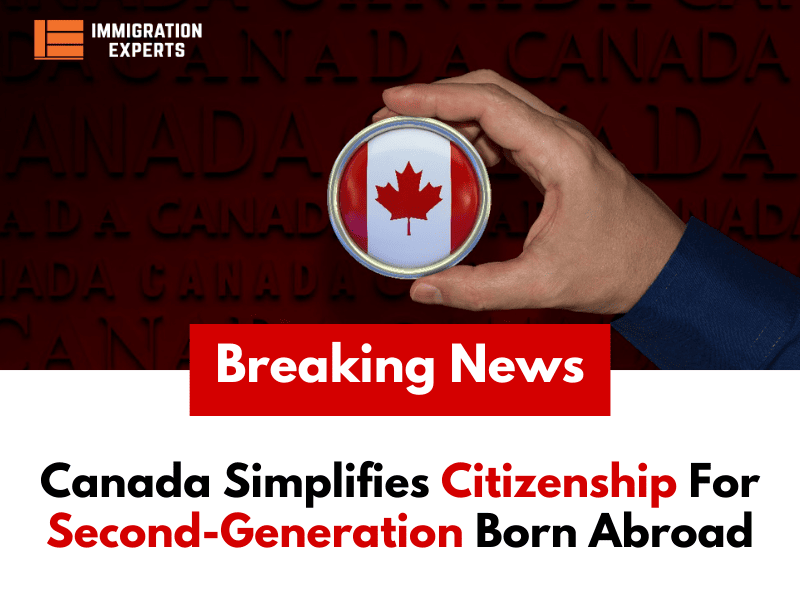051 8439995, 042 35911332

The Canadian government has decided not to challenge a court decision that declared a part of Canada’s Citizenship Act as against the constitution.
The law known as the “second-generation cut-off,” which prevents automatic citizenship for children born abroad if their Canadian parents were also born overseas, was recently ruled to violate Charter rights by an Ontario Superior Court judge.
Canadian Government Accepts Court Decision on Citizenship Act
The existing version of this law has undesirable consequences for Canadians whose children were born outside the country. Immigration Minister Marc Miller announced in an official statement that they will not challenge the court’s decision due to these negative impacts.
Marc emphasized that those potentially affected by this ruling may have questions about its implications for them and their families. He assured that the government will continue assessing how this decision influences existing laws, promising to provide more information and confirm the next steps at the earliest opportunity.
In an interview with CBC News, Attorney Sujit Choudhry revealed that federal government authorities had informed him last week that there would be no appeal, preceding the public announcement of the government’s decision.
Ottawa had a 30-day window to challenge the court’s decision, and Thursday marked the conclusion of that deadline.
Chaudhry, who is representing families affected by the law, expressed relief on behalf of his clients. He described the battle as prolonged and challenging.
In December 2021, Choudhry initiated a constitutional lawsuit against the federal government, asserting that his clients were unfairly unable to pass on their citizenship to their children born abroad.

Critics of the law have argued for a considerable period that it creates a division among Canadians based on whether they were born inside or outside the country.
Limitations for Canadians Born Outside Canada
Justice Jasmine Akbarali of the Ontario Superior Court concurred with this sentiment in her December ruling. She stated that Canadians born outside the country experience “a lesser class of citizenship” because, unlike those born in Canada, they cannot transmit Canadian citizenship to their children born abroad.
The decision is perceived as a victory by up to 200,000 “lost Canadians” – individuals not recognized as citizens due to uncertainties or varying interpretations of citizenship law.
In 2009, the government of Prime Minister Stephen Harper introduced the second-generation cut-off as a measure targeting Canadian citizens living permanently abroad.
This decision was a response to the $85 million evacuation of 15,000 Canadian-Lebanese citizens who found themselves stranded in Beirut during the 2006 conflict between Israel and Hezbollah.
Marc Miller’s Official Statement
The Citizenship Act presently imposes a “first generation limit” on citizenship by descent, meaning that if your parents were born outside Canada, and you were also born abroad, you might not get Canadian citizenship automatically. On December 19, 2023, the Ontario Superior Court of Justice declared this first-generation limit for those born abroad to be unconstitutional.
The existing law, in its current form, has resulted in undesirable consequences for Canadians whose children were born outside the country. Due to these negative impacts, we have decided not to contest the court’s ruling. Individuals who might be affected by this development are likely to have questions about its implications for them and their families. That’s why we will continue to evaluate how this decision influences existing legislation and will promptly provide more information, confirming the next steps.
